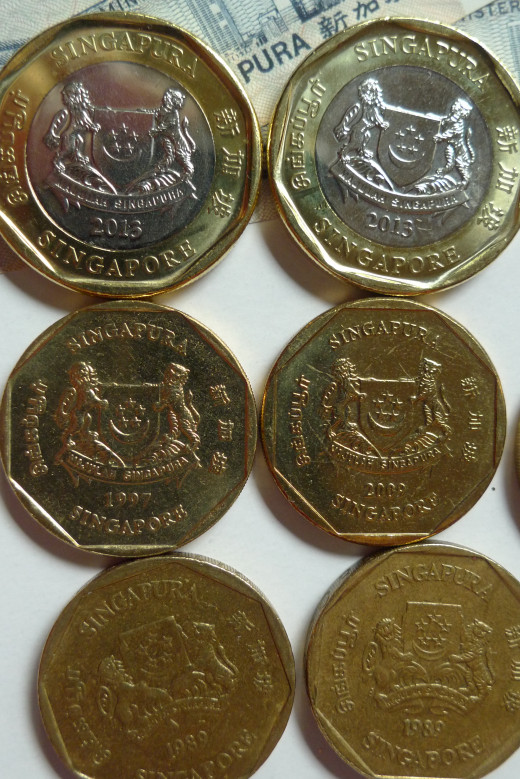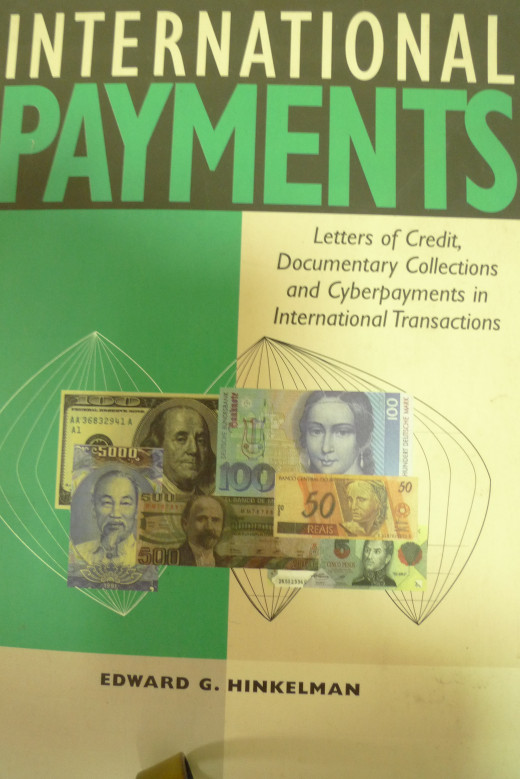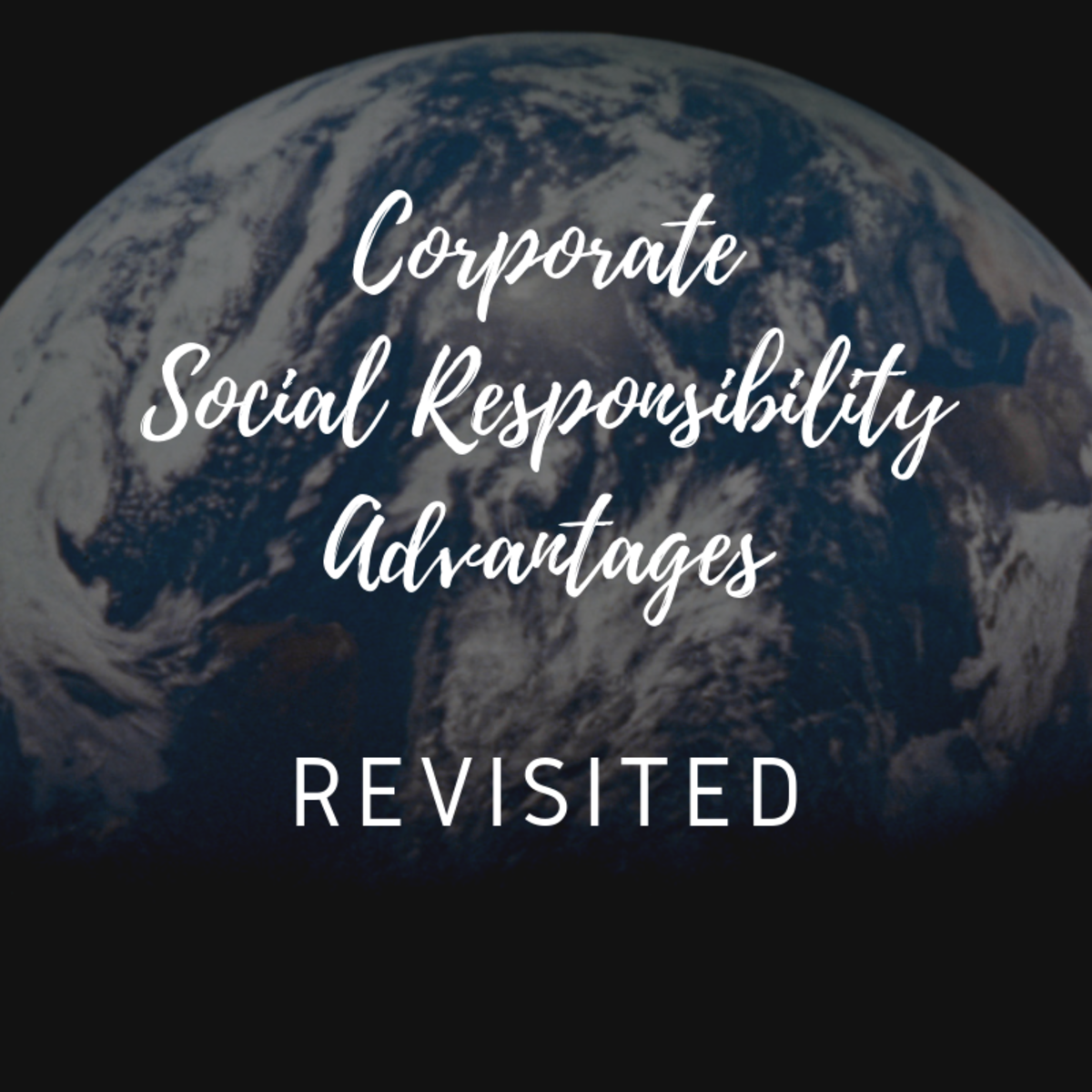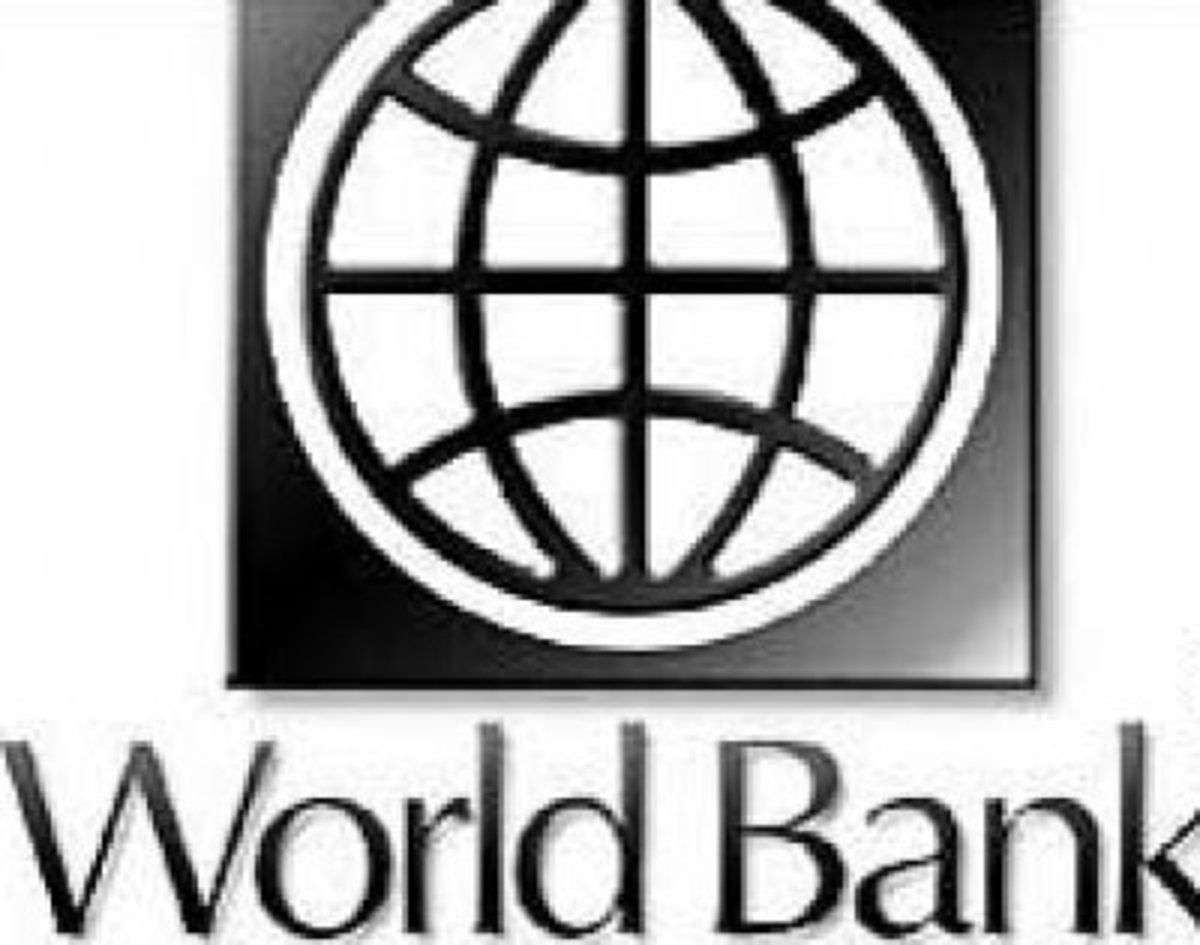THINKING ALOUD (Business&Law) BUSINESS RISKS: Loans & other borrowings
Well, I think that there's a very thin dividing line between success and failure. And I think if you start a business without financial backing, you're likely to go the wrong side of that dividing line.
Richard Branson,
founder of the Virgin Group




Disclaimer
The writer makes no warranty of any kind with respect to the subject matter included herein or the completeness or accuracy of this article which is merely an expression of his own opinion. The writer is not responsible for any actions (or lack thereof) taken as a result of relying on or in any way using information contained in this article and in no event shall be liable for any damages resulting from reliance on or use of this information. Without limiting the above the writer shall have no responsibility for any act or omission on his part. Readers should take specific advice from qualified professionals when dealing with specific situations.
Chén Róng’s
Little English-Chinese Dictionary
riding on the coattails = tōng guò tí xié
illegal fund raising = fēi fǎ mù jí zī jīn
crowd funding = qún zhòng mù zī
goes against the grain = tōng cháng bù huì zuò
quick buck = róng yì dào shǒu;kuài qián
mainstream way = zhǔ liú fāng fǎ


A Personal Guarantee
Acting under undue influence
Writer: Chén Róng
Some years ago, a man claimed that he was under pressure when he became a guarantor for his father's million-dollar loans. The Singapore court decided that the personal guarantee given to the bank was valid and enforceable.
Father and son were partners in an apparel business. When the business had difficulty repaying loans on time, the bank sued for immediate repayment. The father admitted liability for the debt but not his son. In his defence, he explained that coming from a closely-knit traditional family, he has no way but to act in the capacity of a guarantor. Providing the personal guarantee was completely out of his control as "he was financially dependent on him (the father)"; and that he would sign whatever documents his father placed before him. He had almost no opportunity to read or understand them, including the bank guarantee required of him to sign.
The court rejected the guarantor's defence of undue influence to free him from liability for the debt. However, it is worth noting a legal defence raised by the guarantor. Partners are already liable for all debts incurred by their business under the law. A partner cannot also act as a guarantor. The court ignored this defence as a technicality that would not invalidate the guarantee. This is a special case. The guarantor was a law student at the time the guarantee was granted. The court refused to accept the argument that he had no independent mind and will to bear on his signing of the guarantee.
However, in June 2006, Indonesia's Supreme Court declared invalid the $500 million bonds issued by PT Indah Kiat Pulp & Paper, a listed subsidiary of Asia Pulp & Paper (APP). The bonds were nullified on the grounds that the firm had acted as both the debtor and guarantor of the debt and that the transaction was intended to avoid Indonesian withholding taxes. Although this decision was later overturned, it serves as a warning to business people who may use whatever little knowledge they know of existing laws to support their decision to provide personal guarantees for loans. Sometimes court rulings can lead to a bizarre situation. A court system that is unpredictable is something that business people should take notice when venturing abroad.
Watch where you are going!
READ OTHER STORIES AT:
http://chenrong.hubpages.com/hub/THINKING-ALOUD
BUSINESS RISKS:
Loans & other borrowings
Writer: Chén Róng
Biologists found that insects are fast to feel changes in atmospheric pressure. These tiny creatures - beating the weather man to his game - tell you whether it is a good day to play golf. They know right away that a drop in atmospheric pressure indicates a storm coming; and rising pressure brings with it clear sunny skies.
Small and medium-sized firms (SMEs) and micro-enterprises (turnover less than US$1 m/year) in any given economy are like these inserts. They provide a sort of risk assessment to changes taking places in the domestic economy well before economists start voicing their growth economic forecasts. These enterprises will start taking up loans to equip themselves with tools and equipment or refurbish their factory in readiness for new orders. Certainly, there are other reasons for companies to take up commercial loans. The higher end (SMEs) and multinational firms have taken advantage of low interest rates for the past six years to build up their cash reserves in readiness for the next economic upturn. By increasing the amount of debt they carry, companies are stretching their metrics and leaving themselves exposed to the risk that there is not full scale recovery in both domestic and international economies. We should not be critical of this strategy as business itself is risk taking.
Others probably did it for tax planning reasons. Public-listed Cadbury was accused of adopting “aggressive” tax avoidance strategy by borrowing heavily in high-tax countries and finance growth through other low-tax European countries. In fairness, the company may just be using opportunities offered by the UK tax regime; opportunities labelled as loopholes or conflicts that exist between national and international laws. That is another story for another day; for now, the loan the company took up is for fuelling business expansion by its own subsidiaries outside the country. It is a common business strategy used by international conglomerates to maximize returns for their stakeholders and all group members -- the same way as parents would do for themselves with benefits to their children. Moreover, commercial enterprises cannot count on state welfare for their economic well-being.
Many international heavy-weights are also taking advantage of low interest rates to finance mergers and shareholder pay-outs in the form of dividends. Borrowing money to pay shareholders cash dividends does not seem right? It goes against the grain of good corporate governance? No, Apple Inc has recently done it and shareholders seem to like the idea and its shares price was up twenty per cent.
Generally, without having to raise its debt level, a firm uses profits to grow its asset base - more buildings, equipment, vehicles and inventory which depletes its cash. For this reason, a profitable business may not have sufficient cash to distribute a dividend; it has to borrow the money. Certainly, Apple Inc. has a different story to tell. The company borrowed money through a corporate bond issue as it cannot bring cash home without paying hefty USA taxes.
Private Borrowings
For start-ups and firms in business for just a few years are unlikely to get bank loans because of limited cash-flow track record. If they want to grow their business, obtaining a loan from commercial banks is often cumbersome. Despite government initiatives and their dedicated schemes, getting bank loans remain a challenge for (SMEs).
Small firms may resort to borrowing from friends, associates or their own directors. If you are in a joint-venture business in China, do not run afoul of laws; never get involved in underground financing scheme or informal lending by individuals. Such informal lending practices are deep-rooted and can be traced back to ancient day China. Villagers from the same hometown would pool money to support friends and relatives in need of cash -- in return for an interest payment -- but the law does not protect the lender for such private transactions. With family relationships deeply entrenched, few borrowers would dare default on loans with intent to cheat. Today, the same practice continues and corporate loans can easily be arranged by middlemen who are paid a fee and borrowers pay interest at 30% or more per year. In modern China, such activities are considered illegal fund raising. Both the borrower and lender can face charges, including long prison sentences for corporate directors.
But this kind of informal lending based on personal connections in China may morph into funding to crowds -- currently running into hundreds of millions in USA. The help from the American government in the form of federal legislation (part of the Jobs Act 2012) has enabled business owners to raise up to US$1 million a year this way. China is still years away from adopting crowd funding as a financing tool. So are some of its Asian neighbours. Crowd funding as a financing tool is more likely to succeed when introduced in countries with strong business cultures. Those countries requiring lots of government hand-holding, people are being too cushily protected; they blame government agencies for ineffective checks and balances the moment they suffer loss in their investment. IMoreover, it will take more years because of their weak intellectual property laws. With proper regulations, it should do better than the trillions in shadow banking debts arranged by its trust industry -- a form of non-commercial loans mainly to private Chinese companies.We will not discuss the Trust industry here.
While crowd funding is still in its infancy, the business model of the pawn business -- dated back over 3,000 years in Ancient China -- is now a multi-billion dollar industry in Asia. In Vietnam and Thailand, pawnshops are doing a thriving business. Credit-starved firms put up company cars and offices as collateral to stay afloat. In Singapore and Malaysia, the pawn business model has gone through a sea-change. These shops are no longer the atypical ethnic Chinese family-run business located inconspicuously - haughty owners peering down high counters over poor 'Ah Boy’ who needs to pawn the family's last silver to send his children to school. It was then. This time is different. The new-look pawnshop means new business. In present days, the amount of loans given out by pawnshops can be in billions of dollars per year. They spend big on advertising by hiring actors and actresses to front campaigns. The typical customer may be a well-heed entrepreneur putting up his masterly crafted Vacheron Constantin watch for a quick business loan and which he will promptly redeem. The pawn business is now a regulated industry with laws mandating that customers are not charged high interest rates. This is the reason why high-end goods sell better even at times of economic downturns. Putting up one such expensive and branded item for a business loan is now a mainstream way of getting a quick buck without the need for cumbersome banking procedures.
Commercial Loans
Banks are an important source of funds for SMEs. But these enterprises must understand that keeping healthy current accounts and banking payment systems is their most powerful draw when they need loans from their commercial banks for business funding. It has to do with asymmetry of information -- borrowers know much more about their business than bankers. Banks as lenders find it difficult to assess the quality of management of these small companies when it comes to providing risk capital to them. Banks know these customers themselves through their branch offices. This explains why banks have tried hard to spread their distribution networks far and wide in offering basic banking services. But this platform is hard to replicate for the newer banks, hence, small companies should take their long-term funding into consideration when opening a business bank account. In other words, pick the right bank.
The recent trend sees MNCs riding on the coattails of multinational companies. Firms that participate in the management of the flow of goods involving multinational companies stand at a vantage point. Such a program goes toward strengthening creditworthiness, so when MNCs put up banking recommendations to financial institutions are happy to take them as bank customers. With financially stable MNCs on their client-books, small firms are a lot less risky in the eye of a banker. Relationship banking is probably more relevant today than in the past years. It is, therefore, important that newly established firms should start building their credit history with his banker; separating business receipts and expenses in a dedicated account and not combining it with his personal transactions. A bank wants to see a track record of operating cash-flow when considering financing requests.
Small firms taking up bank financing will have their loans secured with collateral and personal (or corporate) guarantee. This is a standard practice. Banks generally want to ensure that the owner takes the loan as seriously as he would with his own money. A bank manager might tell his customer not to lose sleep over a personal guarantee as it is just a standard banking requirement which his bank will never take legal action unless for fraud cases. Do not buy such sales talk.
Unless the intended guarantor owns the business outright, the better way is not to provide a personal guarantee. Providing a personal guarantee runs counter to managing a business in the form of a limited liability company. The legal benefits of incorporation will not protect business owners from a personal guarantee that can wreck the lives of family members who may not be aware of its existence. The bank has a right to pursue personal assets, if his firm defaults---even before the business assets are put up for sale to satisfy the loan. (Read an attached hub on a Legal Case)
A personal guarantee can be called in play when events such as technical defaults, additional borrowings of the firm, a sale of assets, death, or incapacitation take place. In fact, firms should take note of a "non-disposal' clause in the loan agreement provided by their banks. Borrowers are under contractual obligation not to hive-off or separate major assets from their pledge of specific properties to a lender. Nor are they permitted to sell a profitable business that may leave them unable to service the firm's interest payment. The breach of this covenant, unless remedied, will trigger the recalling of the loan. If that is not satisfied, the guarantee may be invoked.
Lenders will evaluate a corporate borrower's loan-to-value ratio when underwriting the collateral loan. This is critical at times of falling commercial asset values - such as buildings and ships -- especially if the cyclical downturn last longer than generally expected such as the current shipping slump which lasted an unprecedented five years. The collateral loan agreement generally includes a loan-to-value ratio clause. It demands that the shipping firm pledge more assets to avoid a loan default. Should the lender sell the collateral asset for less than the amount owed, the borrower is responsible for the full amount of the collateral loan, nonetheless. If the borrower defaults, the lender will require the guarantor to repay the borrower's debt.
The business owner should negotiate out of having to provide the personal guarantee. He may offer to pay a higher interest rate or a shorter maturity date on the loan or even offer to make higher monthly payments. However, if a business owner has no other option but to put up with a personal guarantee, he should call his insurance agent to see if an insurance policy could be arranged to cover against liabilities.
In some countries such as China, providing a personal or corporate guarantee is a common banking requirement for loan applications. Joint venture-partners unaware of the practice may be shocked to know their Chinese partners provide third-party guarantee to an unrelated business -- putting the joint venture business into uncalled for financial risks. The proliferation of corporate loan guarantees is part of Beijing's policy to throw loan lifelines to small and medium-sized enterprises. It is a guarantee system that allows banks to lend to smaller, riskier clients, provided they can find third-party guarantors who will repay the loan if the borrower defaults. People venturing abroad should be aware of similar business practices in other countries.
Mark Twain was credited with this remark: "banker is a fellow who lends you his umbrella when the sun is shining, but wants it back the minute it begins to rain". It sounds much like banks are always standing ready to exact their own pound of flesh from customers! In fairness to all, perception is just nine-tenths of the truth.
There is truth in the Twain-statement when banks themselves face a global credit crunch and they had to withdraw loans to companies to protect their own capital. This is not often the case with established banks that are keen on keeping the goodwill of their better customers. For firms that are lazy about their banking practices - habitual delinquents - banks will be happy to rid them when they are facing hard times themselves.
In truth, one major drawback of traditional bank debt is exposing a firm to insolvency or bankruptcy risks. Many business owners have the misconception that a debt does not equate to insolvency; thinking they have plenty of time to recover from their temporary financial woes. Firms taking these loans could face difficulties a lot sooner than they had expected. In common law countries like Singapore, when a bank sends a debtor a letter of demand, the loan has to be paid up within the given time frame. Having served the letter of demand, the bank does not give the debtor a reasonable time to pay before it appoints a receiver.
The banking accounts of a debtor firm may be frozen the moment a creditor-bank lodged a winding up petition; and the liquidation process to follow almost immediately. Why is it so? It is the legal procedure. The moment the bank threatens to wind up the company, the debtor-firm should be aware that it may be trading when the firm is insolvent. Insolvent trading is unlawful in a number of legal systems. Directors themselves may be personally answerable for the firm's debts in a firm's winding up.
Firms will need to watch if their activities fall into one of these scenarios:
Assets Exceeding Liabilities -- the combined value of all assets is near or lower than the sum of the firm's debts, the firm is either already insolvent or at the brink of it.
Cash flow -- a firm that fails to pay creditors on time is a bad sign. It is a sure sign that the firm is on the path of insolvency.
Well managed firms should find bank loans more of a boon than bane. Bank loans tend to build discipline in a company's cash management and its current ratios -- debt versus equity financing. Moreover, if a bank rejects a loan application, this should wake the firm's management to realise that the financial risk may be too high or the business too risky. For instance, a planned overseas expansion in a politically less stable country may be taken lightly by the firm because its directors are overly confident. The firm should treat it as a form of good corporate governance to review the terms of their intended joint venture contracts with overseas partners and to what extent they should participate, if at all, in the venture.
EXPORT LOANS
Some exporters do not know why their manufactured products (or services) are not competitive -- citing high domestic costs as the main culprit for their inability to compete with other countries producing the same goods. This may not be the real reason. Exporters may be face-to-face with a case of working hard is not good enough, yet working smart is still not good enough without help from export-credit agencies such as a country's Export-Import Bank (Exim Bank) which specialises in trade finance.
Similarly, an engineering consultant who has helped many firms to successfully complete numerous overseas infrastructure projects may find himself unable to convince banks to lend him the money to strike out on his own. Funding is a challenge for him because banks generally are not keen on a SMEs taking on big projects overseas. Banks prefer to place their bets on established multinational players who have good track records.
The engineering consultant needs Exim bank credits or help from a trade agency to get funds under its international finance scheme. The presence of an Exim bank does make a difference to firms going international. Exim banks come in to fill this big void left by commercial lenders who do not support small firms in trade and international financing.
If an exporter's country does not have an Exim bank, he runs an uphill race against his foreign competition. His plight does not end there. Exim banks meet regularly to discuss a wide range of issues on developing export trades. They explore more ways to cooperate to assist their own exporters to the disadvantage of exporters in other foreign exporting countries outside their grouping. Exim banks intercede when small and medium sized firms cannot get upfront capital from commercial banks for buying materials to manufacture products for the export market; or an engineering firm requiring capital for a multi-million dollar project in another country. Certainly, Exim banks play a bigger role serving as a lender of last resort by providing funds to foreign buyers who need money to buy goods or services from local exporters. They would also provide financing and insurance for export transactions and infrastructure projects that would not have taken place because commercial banks are unable or unwilling to accept the political or commercial risks inherent in the transactions.
It may come as a surprise to many merchants that Singapore does not have its own Exim bank to serve the international trading community in its country. On the other hand, its neighbours - Malaysia, Indonesia, Philippines and Thailand -- have active Exim bank s to help their companies in gaining global competitive advantage and the many jobs that go with them. Export-credit financing is especially important to small and medium sized enterprises. SMEs in Southeast Asian countries still have great difficulty in accessing finance for goods and services at a reasonable price. They pay high interest rates and other fees relating to financing offered by commercial banks and these charges are not going down quickly enough. With Exim banks serving as export credit agencies (ECAs), exports can be insured between the time goods are delivered and monies received by exporters. When liquidity is tight, the risk of non-payment increases.
Exporters in countries like Singapore are not placed at a disadvantage, nevertheless. Many export credit agencies (ECAs) are now professionally and independently run; and private insurers at present cover large swathes of the international trading market. Indeed, some ECAs are purely private. The presence of these ECAs augurs well for exporters in countries -- Vietnam, Laos and Cambodia – without Exim Banks as the catalyst. These commercial schemes, including credit insurance, may be equally efficient in helping firms to expand overseas by providing customised loans for different customer requirement.
Singapore's situation is unique. It is a small country with major banks from all over the world. An Exim bank would compete head-on with commercial banks for a piece of an already small pie. It is not good for a tiny city state like Singapore. Export lending can be a complicated process; and servicing customers often intensive so experienced staff must be deployed to service these transactions. This is reason the industry seems to have larger banks as dominant players. Established banks can justify the expense of managing the lending process and the risks involved. Dispensing loans requires unique skills beyond those used in more traditional business financing. Besides, export lending is often short term requirements. It is also transactional and involving lines of credit. This is the reason why few big banks, particularly French financiers (including BNP Paribas, Societe Generale and Credit Agricole) are lending to the same group of trading houses. But things may be changing with the coming of Chinese banks (such as Bank of China & Chang Hwa Commercial Bank) as the yuan as a currency is now assuming an important role in trade finance.
What’s next?
Growing a business is hard and when the right opportunity comes along a business person cannot afford to miss it. Perhaps he has just negotiated a large one-time deal. Or maybe he has been awarded multiple smaller contracts. Quick access to working capital can give him an advantage over his competition. An entrepreneur needs a financier to evaluate his business based on the strength of the transaction, not just his firm's balance sheet - whether it is growing one-office small business or a medium sized firm with rapid growth. In this way, firms get the backing they need; and at a time they need it. No more missed opportunities. That is the way financiers should come into the picture. Moreover, for an exporting firm, it needs more than a banker. It needs the combined flexibility of a bank and a factor with the depth and stability that goes beyond that of traditional banking.
READ OTHER STORIES AT:
http://chenrong.hubpages.com/hub/THINKING-ALOUD
---- E N D -----
Hubpages do not support words written in the Chinese Language. Readers can get a free online English-Chinese translation from GOOGLE TRANSLATE OR TRANSLATED.net
I have also included ChénRóng’s Little English-Chinese Dictionary for a more precise translation of select English phrases from the article.
……………….












